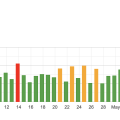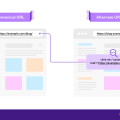So, you’re diving into the world of digital marketing and keep hearing the term “backlink” tossed around. Basically, a backlink is like a vote of confidence from one website to another. When one site links to yours, it’s essentially saying, “Hey, this content is worth checking out!” In our brief guide, “What Is A Backlink?”, you’ll get a clear rundown of what backlinks are, why they’re important for SEO, and how they can help boost your site’s credibility and search engine ranking. Dive in and discover how to leverage these powerful tools to enhance your online presence.
What Is A Backlink?
What comes to mind when you hear the term “backlink”? If you’re diving into the world of digital marketing, SEO, or website management, you’ve probably heard this buzzword thrown around quite a bit. But what exactly is a backlink, and why is it so crucial for your website’s success? Let’s break it down together.

What Is A Backlink?
So, what is a backlink? In its simplest form, a backlink is a link from one website to another. Think of it like a digital vote of confidence. If someone finds value in the content you’re providing, they might link back to your site from theirs. This action not only directs traffic to your website but also indicates to search engines that your content is credible and worth referencing.
The Anatomy of a Backlink
Let’s dig a bit deeper into its anatomy. A backlink typically consists of an anchor text and an HTML tag. The anchor text is the clickable part of the link you usually see on a web page, while the HTML tag, such as anchor text, tells search engines where the link is pointing.
Here’s a simple breakdown in a table:
| Component | Description |
|---|---|
| Anchor Text | The visible, clickable text of a link |
| HTML Tag | The code snippet that links one site to another |
Types of Backlinks
Not all backlinks are created equal. There are different types of backlinks, each holding its significance. The two major categories are:
- Do-follow Backlinks: These are the most valuable types of backlinks. They allow search engines to follow them and pass on link equity, boosting your page’s ranking.
- No-follow Backlinks: These links have a “no-follow” tag, instructing search engines not to follow them. While they don’t directly contribute to your SEO ranking, they can still drive traffic to your website.
Why Are Backlinks Important?
Alright, now that you know what a backlink is, why should you care about them? The short answer: backlinks are one of the most significant factors in SEO.
Search Engine Ranking
Search engines like Google use complicated algorithms to determine the relevance and authority of a website. One of the key factors that these algorithms analyze is the number and quality of backlinks pointing to your site. Essentially, backlinks can significantly improve your website’s search engine rankings.
Website Traffic
Beyond SEO, backlinks are a great way to drive traffic to your website. When high-quality websites link to your site, their audience may click through to explore your content, boosting your visibility and potentially converting visitors into customers.
Building Authority
Think of backlinks as endorsements. When reputable websites link to your content, it gives your site a vote of confidence, helping to build your authority and credibility within your industry. Over time, this can lead to more organic backlinks, further strengthening your site’s position online.
How Do You Get Backlinks?
Getting backlinks isn’t always straightforward. It requires a thoughtful approach and sometimes a lot of patience. Let’s break down some effective strategies to acquire these valuable links.
Creating High-Quality Content
Without a doubt, the most surefire way to attract backlinks is by creating high-quality, valuable content. If your content solves problems, offers unique insights, or provides significant value, other website owners will naturally want to link to it.
Guest Blogging
Guest blogging is another effective way to earn backlinks. By writing guest posts for other reputable websites within your niche, you can include a link back to your own site, thus earning a valuable backlink.
Building Relationships
Relationships matter in the digital world. Networking with influencers, bloggers, and webmasters can open doors to backlink opportunities. Participate in industry forums, engage in social media conversations, and build relationships that may lead to backlink opportunities.
Skyscraper Technique
This involves finding content in your niche that already has a high number of backlinks, then creating even better, more comprehensive content on the same topic. After publishing your “skyscraper” content, you can reach out to sites that linked to the original piece and suggest they link to your improved version instead.
Evaluating Backlink Quality
Not all backlinks are created equal. Knowing how to evaluate the quality of backlinks is crucial. Here are some key aspects to consider.
Domain Authority (DA)
Domain Authority is a metric developed by Moz to predict how well a website will rank on search engine results pages (SERPs). Generally, backlinks from websites with a high DA are more valuable.
Relevance
A backlink’s quality is also tied to the linking site’s relevance to your own. For example, a backlink from a website in the same industry or niche as yours is more valuable than one from an unrelated site.
Placement
Where the backlink is placed on the webpage matters too. A backlink within the main content area is generally more valuable than one in the footer or sidebar.
Anchor Text
The words used in the anchor text are another critical factor. An anchor text that includes your target keywords is usually more beneficial for SEO than a generic anchor text like “click here.”
Inspecting Backlink Quality
Here’s a simple table to remember the aspects for evaluating backlink quality:
| Aspect | Importance |
|---|---|
| Domain Authority | High DA sites are more valuable |
| Relevance | Relevant industry or niche links are more beneficial |
| Placement | In-content backlinks are more valuable than footer or sidebar links |
| Anchor Text | Keyword-rich anchor texts are more beneficial for SEO |

Tools for Backlink Analysis
Alright, so you understand the importance of backlinks and how to evaluate them. But how do you keep track of your backlinks and analyze their quality? Fortunately, several tools can make this process a lot easier.
Ahrefs
Ahrefs is one of the most popular tools for backlink analysis. It provides detailed reports on who is linking to your site, the quality of those links, and how your backlink profile compares to competitors.
SEMrush
SEMrush is another powerful tool for backlink analysis. It allows you to track your backlinks’ number, quality, and source, offering insights to improve your backlink strategy.
Moz Link Explorer
Moz Link Explorer helps you understand your backlink profile by providing valuable metrics like Domain Authority and spam score. It also offers competitor backlink analysis.
Google Search Console
Google Search Console is a must-have tool for any website owner. It provides a free and straightforward way to monitor your backlinks, among many other essential metrics.
Common Backlink Myths
When it comes to backlinks, several myths can misguide your strategy. Let’s debunk some of the most common misconceptions.
More Backlinks Are Always Better
While having a lot of backlinks can be beneficial, quality trumps quantity. A few high-quality backlinks from authoritative sites can be more valuable than numerous low-quality links.
All Backlinks Are Equal
As we’ve discussed, not all backlinks carry the same weight. The quality, relevance, and placement of the backlinks play a significant role in determining their value.
Only Followed Links Matter
While do-follow links are more beneficial for SEO, no-follow links shouldn’t be ignored. They can still drive traffic and sometimes convert into do-follow links through relationship building.
Buying Links Is a Quick Win
Buying links might seem like a shortcut to improve your SEO, but it can do more harm than good. Google penalizes websites that engage in link buying, which can significantly hurt your rankings.

Backlink Strategies for Different Types of Websites
Whether you have a blog, an e-commerce site, or a corporate website, your backlink strategy might vary. Let’s explore this further.
Blogs
For blogs, the focus should be on creating evergreen content that provides value to readers. Utilize guest blogging, build relationships with other bloggers, and actively participate in forums related to your niche.
E-commerce Sites
For e-commerce websites, product reviews, and collaborations with influencers can be an effective backlink strategy. Encouraging satisfied customers to leave reviews on relevant blogs and websites can also help.
Corporate Websites
For corporate sites, whitepapers, case studies, and press releases are excellent sources of backlinks. Building relationships with industry publications and news websites can result in authoritative backlinks.
Ethical Considerations
While backlinks are essential for SEO, it’s important to approach backlink building ethically. Here are some ethical considerations to keep in mind.
Avoid Black Hat SEO Techniques
Black hat SEO techniques such as link farming, buying backlinks, and using automated link-building software can lead to severe penalties from search engines. These practices might offer short-term gains but can damage your site’s reputation in the long run.
Transparency and Honesty
When requesting backlinks, be transparent and honest about your intentions. Most webmasters appreciate genuine, straightforward communication over manipulative tactics.
Value-Driven Approach
Focus on creating value-driven content that naturally attracts backlinks. When you provide real value to your audience, others will want to link back to you without needing to resort to unethical practices.
Staying Updated on Backlink Best Practices
The world of SEO is fluid, with best practices continually evolving. To stay ahead of the curve, it’s crucial to stay updated on the latest trends and changes in backlink strategies.
Follow SEO Blogs and Forums
Keeping an eye on reputable SEO blogs and forums can give you the latest insights and strategies in backlink building. Websites like Moz, Ahrefs, and Search Engine Journal frequently update their content to reflect current trends.
Engage in SEO Communities
Engaging with SEO communities on platforms like Reddit, Quora, and LinkedIn can provide valuable tips and keep you informed about changes in the SEO landscape.
Continuous Learning
SEO is an ongoing learning process. Investing time in continuous education, through courses, webinars, and industry conferences, can help you stay updated and refine your backlink strategies.
Conclusion
Understanding backlinks is crucial for anyone aiming to improve their website’s SEO performance. From learning what a backlink is to exploring different strategies for obtaining them, it’s clear that backlinks are a multi-faceted component of SEO.
Whether you’re creating high-quality content, engaging in guest blogging, or evaluating the quality of your backlinks, each step plays a critical role in your site’s performance. By focusing on ethical, value-driven practices and keeping yourself updated on the latest trends, you can significantly boost your website’s authority and search engine ranking.
So there you have it! Backlinks may seem like a simple concept at first glance, but they hold immense power in the world of SEO. Are you ready to take your backlink strategy to the next level?











